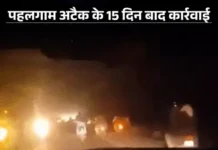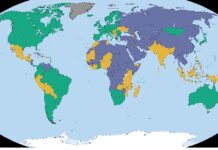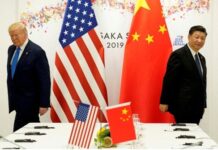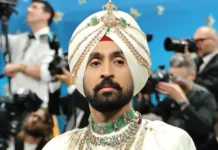
The external affairs minister spoke at length about the problem of extremism in Canadian politics that fuels separatist sentiments against India. Some proponents of these views advocate for violence as a means to achieve their goals, which Jaishankar pointed out is a serious issue that needs to be addressed.
Jaishankar highlighted the need for democratic societies like Canada and India to work together to combat the rise of such dangerous ideologies, emphasizing the importance of unity, peace, and diplomatic resolution to conflicts.
External Affairs Minister, S Jaishankar, while speaking at an event in London, mentioned the ongoing Khalistan row, specifically focusing on the issue of Canada seemingly providing a safe haven for extremism. As an example, Jaishankar cited the Kanishka bombings case and highlighted that Nijjar, an individual implicated in the event, had a pretty graphic track record.
India’s Foreign Minister, Subrahmanyam Jaishankar, was bringing back questions about Hardeep Singh Nijjar, a Khalistani separatist charged of terrorism by the Indian government. Instead of making a direct accusation, Jaishankar referred to Nijjar’s public track record, informed of his involvement in several activities. He further encouraged everyone to make their own judgment based on that evidence.
The Air India bombing incident, which develop on June 23, 1985, is known as the largest mass murder in Canadian history. Two bombs that had been planted on separate Air India flights by Sikh radical in Canada detonated within an hour of each other, killing a total of 329 people.
In 1985 the air india bombing, and jaishankar said in the speech we saw an incident where bombs were found in the air india planes. Fortunately one of them landed before the bomb could go off. In the other one, over 327 many people lost their lives , and a plane crashed off ireland.
EAM, in this context, most likely stands for External Affairs Minister. Unfortunately, the specific name of the speaker is not provided. However, he/she is likely a member of the Indian government addressing concerns about what they perceive as an allowance for extreme viewpoints in Canadian politics, specifically those advocating for separation from India.
The observer noted how the accommodation of certain radical perspectives within Canadian politics has led to repercussions for Indian diplomats. These include attacks on the Indian High Commission and threats against consul generals and other diplomatic personnel.
The speaker here is most likely an ambassador or high-ranking diplomat of a country expressing frustration over recent hostile incidents aimed at their diplomatic team or embassy (referred to as High Commission). The diplomat speaks of multiple forms of attacks, including smoke bombs, intimidation of diplomats, and claims there was no intervention or action from the country’s law enforcement or authorities to stop or address these events.
This statement speaks to the fundamental belief that the common freedoms that citizens enjoy, such as freedom of speech, should be used responsibly. The particular goes on to say that using these freedoms in a way that causes harm or instigates problems is a misuse of those freedoms. Furthermore, brook this misuse is also problematic as it goes against the spirit of a democratic society. He suggests that a country like Canada, much like India and the UK, adheres to democratic values and norms and thus, should not condone the misuse of freedoms granted to its citizens. Therefore, it is basic to understand and respect the weight of these freedoms, utilizing them thoughtfully and responsibly, and holding people accountable if they are misused.























































